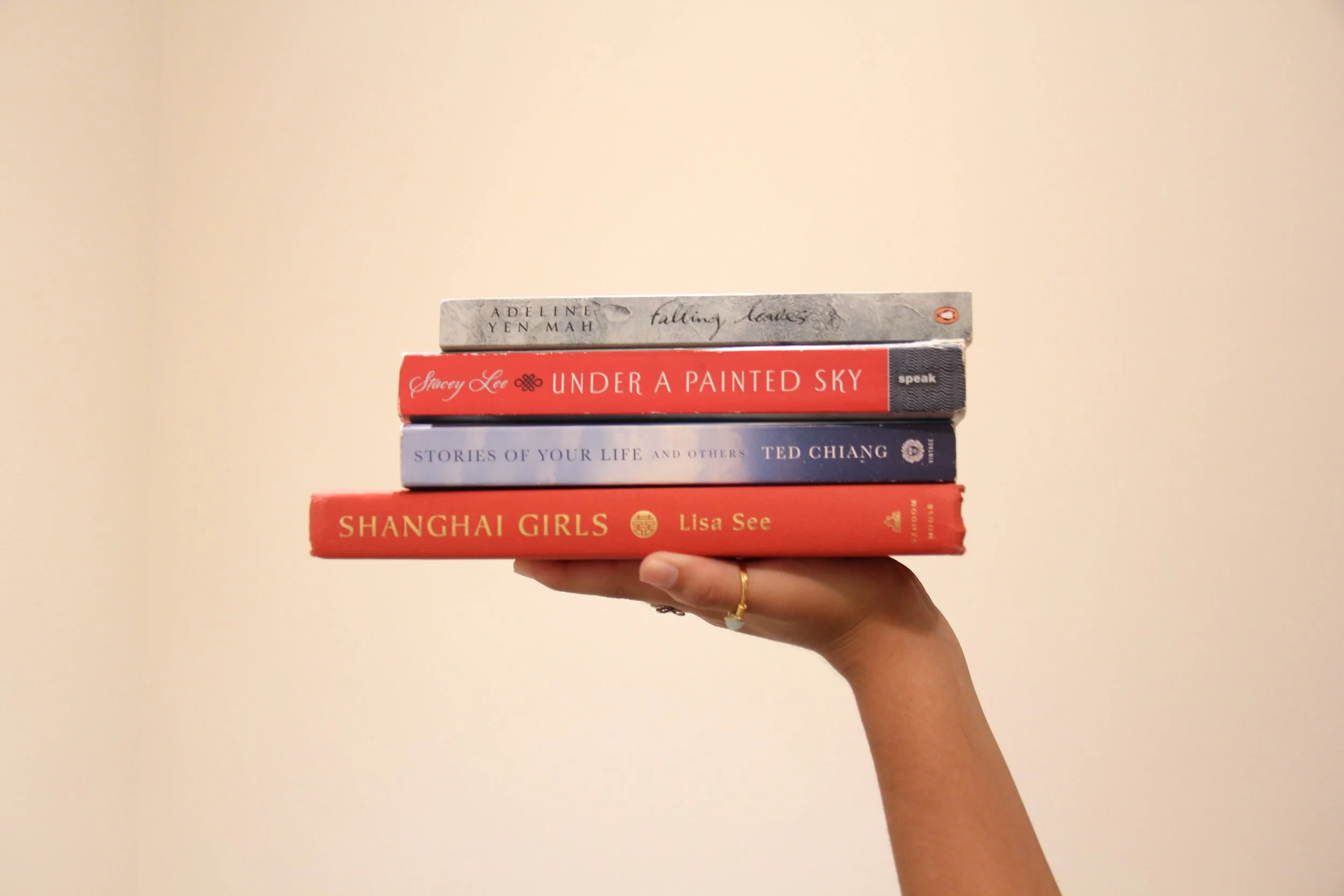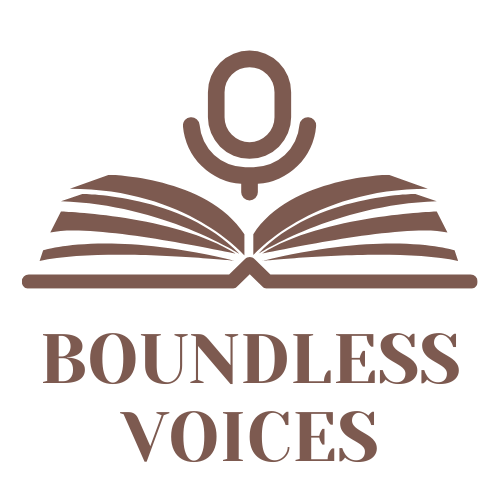for the readers of the future
Our Mission
Boundless Voices works to break down cultural barriers and stigma by promoting the work of AAPI(Asian American Pacific Islander) writers and artists. In a time where AAPI voices are underrepresented in the media, we hope to inspire and embolden the next generation of readers to see the world through new perspectives.
Operation Bound to Read
With this campaign we were able to reach young readers by purchasing and donating children's books written by local authors to doctors offices around Oahu. Each book donated went home with a child, to encourage them to continue their journey towards literacy in seeing themselves represented.
With this project and the help of our donors, we raised $2,500+ and donated 300+ books!
Special thanks to the folks at Kōkua Kalihi Valley for showing us around!
Watch our first interview!
For our first interview (and first video!), we talked to Ms. Nora Okja Keller about her novel Comfort Woman, discussing topics such as growing up in Hawaii, language and mother tongues, and Japan’s “Comfort Women.”
Special thanks to Bamboo Ridge Press for making this video possible!
Past Episodes
“Human experience, combined with the power of imagination and understanding, can break down all barriers, enabling a person truly to understand that thing called fate at work in his life—not unlike the experience of simultaneously seeing one’s reflection in two different mirrors . Perhaps this is what makes literature magical; it is precisely this magic that enabled me—a reader on the other side of the word in China—to read the novels of Nathaniel Hawthorne, William Faulkner, and Toni Morrison, and through them, to discover myself.”
- Yu Hua
Founder’s Message
I have always been an avid reader, and am so grateful to now have a way to share this passion with others.
I began this project during the spring of 2020, in the midst of the pandemic, with the goal of using my passion for reading to give back to my community. In a youth leadership program with Teach for America, I worked with local educators and community leaders to research key issues preventing education equity. I narrowed my focus down to these questions: How might we make it easier for students to find books that would interest them and build a community to encourage reading?
After that program concluded, I continued to think about these issues and expanded my interviews with teachers and parents. During these conversations, one issue kept coming up again and again. Lack of student interest in the books they read. As I dug further into this issue, I found that a key to driving student interest is their ability to relate to the stories and find themselves in the books they are reading. Once students have a foundation of literacy, they can then expand to other cultures and points of view to build a diverse understanding of the world around them. Though I’m a lover of all genres, I found that I had also struggled to find myself in many of the books that I read in school. This led me to consider who is writing the books that we read and the lack of representation in the book industry.
The COVID-19 pandemic had brought up a few important questions for me. How can we empathize with those who disagree with us? How can I explain my culture to you in a way that allows you to appreciate the nuance? How can we ever possibly understand each other? For me, the answer, whether I realized it or not, was always literature and stories.
Stories allow us to educate ourselves by giving us a glimpse into the world views of others, but they also empower us by bringing awareness to shared experiences, letting us know that we are not alone. I hope you can see yourself reflected in some of the stories we share, and recognize that we are more alike than we think we are.
Keep reading!
Sincerely,
Nicole Dao
Amber’s Message
I have always believed reading to be an extremely powerful tool that allows us to expose ourselves to ideas and perspectives that we would otherwise be ignorant to.
In my own classrooms, I would observe performance disparities between minority student’s and their majority counterparts. Through my own research in trying to understand how this disparity occurs, I had come across some extremely sobering statistics. Minority students are more likely to perform worse academically, are less likely to complete higher level education, and are more likely to experience worse life outcomes.
This information is sobering, but it is not novel. These issues are significant, pressing, well known, and evident. Through consulting experts and further research, I found that one of the most significant explanations for the performance differences among minority cultures is the ability of a family to supply their children with academic resources to facilitate their education. One focal academic resource is books.
I find it amazing the impact that books and a student’s exposure to different world views, cultures, and perspectives have on academic outcomes. It insinuates that these things are invaluable to a child’s development and education, and a way to support disadvantaged communities and their children is by making these academic resources and perspectives more easily available to them.
The inspiration for our projects such as the Boundless Voices podcast and Operation: Bound to Read started with a pure fascination and adoration for books. We thought attempting to discuss books as things that have the potential to impact our lives so significantly would cause fellow students to view books in much the same way. We love books, and we hope that we can help children build this appreciation too. I hope that our efforts will work to improve these educational performance differences and will support a new generation of leaders, scholars, and thinkers with an increasingly diverse understanding of our world.
Keep learning!
Sincerely,
Amber Nobriga
Nicole’s Blog












Ep. #10 & #11